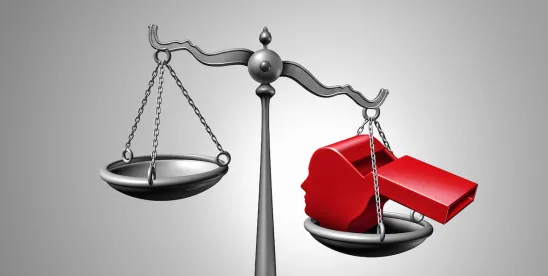Whistleblower awards are empirically proven to strengthen the fight against financial crime, according to a report released on December 10 from the Royal United Services Institute (RUSI).
The report builds upon a growing body of research about the effectiveness of the United States’ whistleblower award programs, while also directly addressing the arguments raised against the implementation of whistleblower awards in the United Kingdom.
At a London event launching the report, Eliza Lockhart, the author, explained that over the course of her research, she frequently heard those opposed to whistleblower awards express say, ‘People should not be rewarded for doing the right thing.’ Lockhart said, “it’s taken me a while to unpack exactly where that narrative comes from, but more importantly, why it does us a disservice if our ultimate goal is to increase the detection and deterrence of economic crime.”
The research project was designed to study the effectiveness of whistleblower award programs that target private sector economic crime. Lockhart analyzed data from existing programs in the U.S. and Canada, specifically programs that are run by the U.S. Securities Exchange Commission, the U.S. Commodity Futures Trading Commission, and the Ontario Securities Commission. She also conducted expert interviews with current and former representatives of government agencies who run these programs, with civil society and private sector stakeholders, and with lawyers, academics and whistleblowers in the U.S., Canada, Australia and the UK.
Lockhart distills her results into four observations, which are particularly helpful as UK policy makers consider whether to implement rewards.
Observation #1: Rewards achieve certain goals, but not in isolation.
Lockhart explains that whistleblower award programs achieve important outcomes in the fight against financial crime, including an increase in the number of whistleblowers coming forward with actionable intelligence about illicit financial activity, an increase in successful law enforcement actions, an economic crime deterrent effect, and improved private sector compliance.
In jurisdictions where award laws have been implemented, whistleblowers have access to specialized legal representation upfront on a contingency basis, which gives whistleblowers an even playing field for going up against the powerful corporate entities they are reporting.
These effects, which are experienced in the U.S. and Canada, should be the goals of any whistleblower award program, says Lockhart, but she adds, “these positive outcomes must be placed in context, and that is that rewards are essentially a regulatory tool.”
Since whistleblower award programs for financial crime are designed to increase detection and deterrence of illicit financial activity prioritized by law enforcement, whistleblower award programs will align to some extent, but not to a full extent, with the goal of protecting and compensating whistleblowers broadly. As case in point, Eliza cites data from the U.S. Security and Exchange Commission whistleblower program, which has only granted rewards to about 0.5% of submissions it’s received.
“These programs are not designed to compensate,” Lockhart demonstrates. “They are designed to create an intelligence service and pay for that service when it gets results.”
In order to achieve to maximize this intelligence potential, though, there are three measures that should be incorporated into the framework of any program: (1) the implementation of anti-retaliation provisions, including confidentiality requirements and equitable remedies; (2) the program should be defended and empowered by a proactive regulator; (3) the program should be administered and monitored by a well-resourced whistleblower office, which may refer to a team of intelligent legal and accounting specialists within a relevant regulator.
Observation #2: Consult to customize
Building from this basic framework, the report emphasizes the importance of customizing specific rules based on what makes sense in a particular jurisdiction. Design choices for a whistleblower program include what information is eligible for an award, what factors might disqualify someone’s eligibility for the program, what factors might increase or decrease an award amount, and what the maximum and minimum award are.
Observation #3: Prioritize the message, not the messenger
The evidence in Lockhart’s report responds to common concerns over rewarding whistleblowers in the UK. Eliza said, “I came across many, many misconceptions about reward programs in the course of this research, but the fundamental one… was that people should not be rewarded for doing the right thing.”
She attributes that narrative to the UK’s treatment of whistleblowing as an employment law issue, rather than an anti-corruption issue. The current legal system for whistleblower investigations is focused on the individual. Companies question whistleblowers’ motivations, employment records, and life choices. However, the U.S. and Canadian model focuses on the value of the information.
“This represents a profound change in the concept of whistleblowing, from an altruistic act of a moralistic individual to the provision of an intelligence service, and like any service, the provider, in this case, the whistleblower gets paid on the basis of the value of that service.”
“The intelligence first mindset is particularly relevant when you’re considering corporate whistleblowers,” said Eliza. “Although many of them will have clean hands, complicit insiders are often the most valuable source of information on covert illicit financial activities.”
“The evidence demonstrates that it’s just unrealistic to expect corporate insiders to come forward out of the goodness of their hearts, because the risks associated with becoming a whistleblower overwhelm everything else.”
Whistleblowers experience extreme personal, professional, financial, and even medical complications from reporting, and these risks increase in highly remunerated financial sector positions, where whistleblowers are often blacklisted from their profession for the rest of their lives.
One key decision in creating the rules for a whistleblower program is determining the award eligibility of whistleblowers who have been complicit in the crime they report. Lockhart’s research is clear that ensuring these individuals remain eligible is crucial to the goals of the program.
“It’s just the nature of the beast when you’re dealing with illicit financial activity, that information is probably going to be quarantined amongst complicit insiders,” said Eliza, drawing on how cases like Bradley Birkenfeld have led to some of the most important breakthroughs in financial crime investigations in the United States.
When asked about whether the UK is ready for cultural shift that whistleblower incentivization would require, Lockhart responded that “the public are further down this path than a lot of policymakers give them credit for,” citing how attitudes have changed after multiple scandals in Britain where it’s been revealed corruption financial crime had been ongoing for decades, with sometimes hundreds of people aware of it, yet nothing being done. The public, “can connect those scandals to direct impacts in people’s lives, impacting the public purse, but also, I think more whistleblowers are stepping into the light and sharing their story, and I think the public have sympathy for that.”
Observation #4: Ongoing progress, not immediate perfection
The final recommendation of the RUSI report was to create a program that was constantly evolving to respond to the anti-corruption challenges of the financial industry. For instance, in the U.S., the SEC and CFTC have prohibited language in employment contracts and severance agreements that impedes employees from reporting to regulators, and they are actively sanctioning companies who violate these rules. The law enforcement agency overseeing the whistleblower program must actively monitor obstacles like this so that it can prevent efforts to undermine the integrity of the program.
Next Steps from the UK’s Serious Fraud Office
Director of the UK’s Serious Fraud Office (SFO), Nick Ephgrave QPM, also spoke on the panel at the report launch. Director Ephgrave described whistleblower awards as a potential intervention in trying to solve a problem of brain drain – or “intelligence drain.”
He said, “We know that many, many hundreds of whistleblowers have chosen to go abroad to blow the whistle, because there is simply no incentive they can do that here…That means that we don’t get the benefit of bringing those individuals or corporations to justice in this country. We don’t benefit financially from the fines and their compensation can come from successful convictions, and it means that people in my office are still scrambling around in the dark.”
Whistleblowers, he said, are “key holders.” The average number of documents on any one of Director Ephgrave’s cases is 5 million, with the largest in recent history being 70 million documents. If a whistleblower came forward and was able to describe the “who, what, when, where and how” specifics and tell the SFO exactly where to look, what the relevant time frames are, and which institutions to focus on, investigations would be made more effective and efficient.
“We would speed up our prosecutions. We will produce the volume of disposable material we have to deal with. We would speed up the entire investigation process. I think we would get better evidence more quickly. That would draw in more guilty pleas. We would thus reduce court time. We would bring justice more swiftly for the victims of those corporations, and deliver much more money back to the Treasury so that he spends on things we all care about, the health service, fixing potholes, the defense and so on and so forth. Why on earth we are so opposed philosophically to this approach, baffles me.”




 />i
/>i
